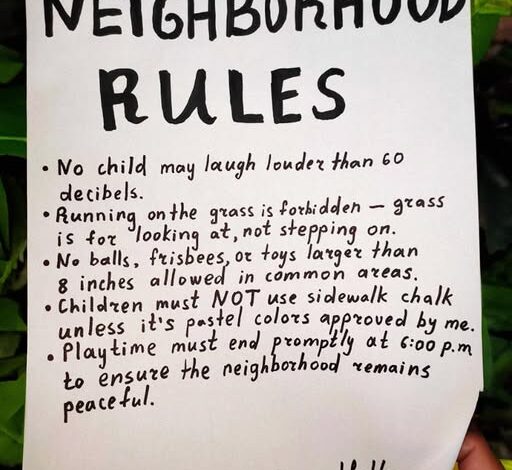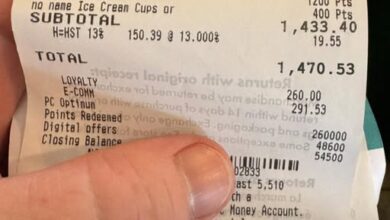
Entitled Neighbor Banned My Kids from Playing Outside Because They Break Her Rules, I Went to War for My Kids
When we bought our house in Silver Springs, it felt like all the sacrifices had finally paid off. My husband Dave and I had scrimped and saved for years, sacrificing vacations, dinners out, even replacing the old car, just to scrape together enough for the down payment. Walking into our new home for the first time was like stepping into a dream. The backyard was sprawling compared to the tiny patch of concrete we’d had behind our apartment. For the first time, our son Simon had space to kick around his soccer ball without worrying about breaking a neighbor’s window, and our little girl Abby could run full speed without me hovering and warning her to “watch out.” It was everything we’d hoped for.
The first week, I unpacked boxes while Abby ran across the grass squealing with joy, her pigtails flying, and Simon proudly kicked a ball against the fence. The neighbors waved. Children rode their bikes down the quiet street. It was a picture-perfect suburb, the kind of place you imagine raising your kids in when you’re stuck in a cramped apartment listening to sirens outside your window. For once, I felt like we’d done something right.
That illusion didn’t last long.
One morning Dave called me to the front door, his face twisted into something between shock and disgust. Taped to the door was a white envelope with my name written in neat cursive. Inside was a typed list titled “NEIGHBORHOOD RULES.” I thought it was some kind of HOA guideline until I started reading. Rule number one: “No child may laugh louder than 60 decibels.” Rule two: “Running on grass is forbidden—it is for looking at, not stepping on.” Rule three: “No balls, frisbees, or toys larger than eight inches allowed in common areas.” Rule four: “Sidewalk chalk is permitted only in pastel colors pre-approved by me.” Rule five: “Playtime must end by 6:00 p.m. sharp to preserve neighborhood peace.”
At the bottom was a signature: “Respectfully, Melissa, Homeowner.”
Melissa happened to live right next door, in a white colonial that looked like it belonged in a lifestyle magazine. I crumpled the letter and tossed it in the trash, muttering that no one was going to dictate how my kids played on the lawn we were paying a mortgage for. I figured that was the end of it.
I was wrong.
Three days later, Simon and Abby came home from the playground, shoulders slumped, faces pale. They weren’t giggling or bubbling over with stories like usual. When I pressed them, Abby’s lip trembled as she whispered, “Ms. Melissa said we can’t play there anymore.” Simon explained that Melissa had stood at the playground with a clipboard, telling them their laughter was too loud and that they were disturbing the peace. My little girl’s eyes filled with tears as she said, “She told us good children play quietly.”
That was the moment I snapped. No one makes my children ashamed of being kids. Not a teacher, not a stranger, and certainly not some self-appointed neighborhood dictator with a clipboard.
That night, Dave and I sat at the table after the kids were in bed. I was shaking with rage. Dave tried to calm me down, but I was already plotting. I wasn’t going to yell or get into a shouting match—Melissa wanted control, and I was going to strip it from her in the most humiliating way possible.
The next day I bought printer paper, envelopes, and a cheap toy noise meter. That evening, I typed up a brand-new set of “Neighborhood Rules.” Only these weren’t rules—they were satire. I wrote that all dogs must wear socks at all times to avoid contaminating the grass. That laughter was allowed only between 2:00 and 2:15 p.m. on weekdays. That Melissa’s lawn could only be looked at with written permission 48 hours in advance. That joggers must maintain a dignified pace of exactly two miles per hour while humming classical music. That birds singing over 50 decibels must be reported to Melissa for citation.
I printed twenty copies and taped them to every house on our street—except Melissa’s. By morning, the neighborhood was in stitches. I watched from my window as people doubled over with laughter reading the fake rules, then gathered in little groups, pointing at Melissa’s house and grinning. By 9 a.m., Melissa’s self-importance was the running joke of Silver Springs.
But I wasn’t finished.
That afternoon I took Simon and Abby back to the playground, noise meter in hand. Every time they laughed, I held it up and announced their “decibel level.” When Abby squealed down the slide, I called out, “Fifty-nine decibels—perfectly acceptable!” Simon laughed so hard he almost fell off the swing, and the neighbors walking by chuckled at the spectacle. Soon, people gathered around, amused at our obvious parody.
Then Melissa stormed down the street, red-faced and furious. She shouted that we were mocking her rules, that we were disrupting the neighborhood, that she would call the police. I calmly held up my toy meter and said, “Fifty-eight decibels, Melissa. Still legal.” The crowd of neighbors smirked.
True to her word, she called the police. When the officers arrived, Melissa launched into a tirade about noise violations, fake rules, and disrespect. The officers looked at my children laughing on the swings, at my plastic toy meter, and then at Melissa, who was screaming so loudly she was drawing more attention than any child ever could.
Finally, one officer told her to lower her voice. She refused. She ranted, pointed, and accused everyone of conspiring against her. The irony was too perfect—Melissa, shrieking about noise violations while disturbing the peace herself. And that’s when the officers did the unthinkable: they arrested her for exactly that—disturbing the peace.
The neighborhood erupted into applause as she was led away, still yelling about order and rules. By the end of the week, everyone knew the story of how Melissa became the only person in Silver Springs arrested for the very thing she accused children of doing: making too much noise.
Now she avoids us completely. She shuts her blinds when my kids play outside and crosses the street to avoid me. She hasn’t distributed a single “rule” since. Meanwhile, Simon and Abby laugh and run until the streetlights come on, as free and loud as children are supposed to be. And sometimes, when they really get going, I still pull out that toy noise meter just for fun.
Because no one—not even Melissa—gets to tell my children they can’t be kids.




